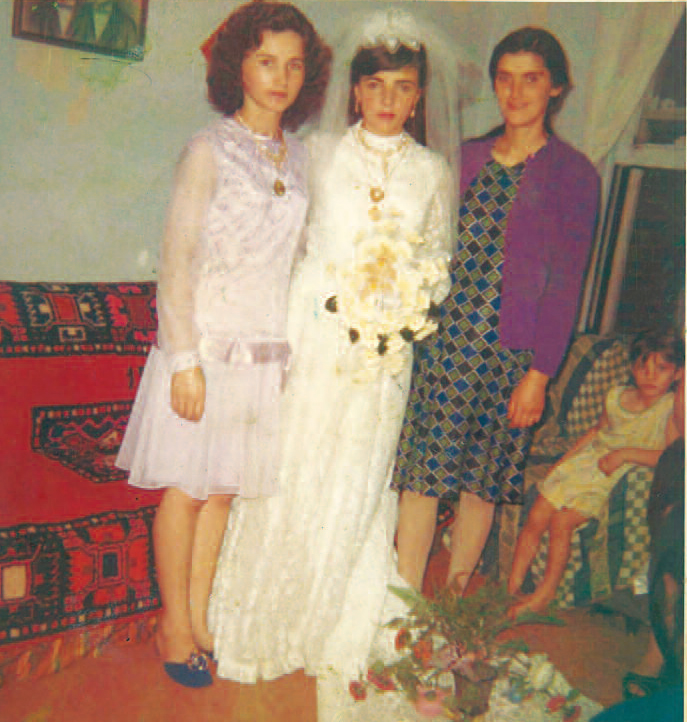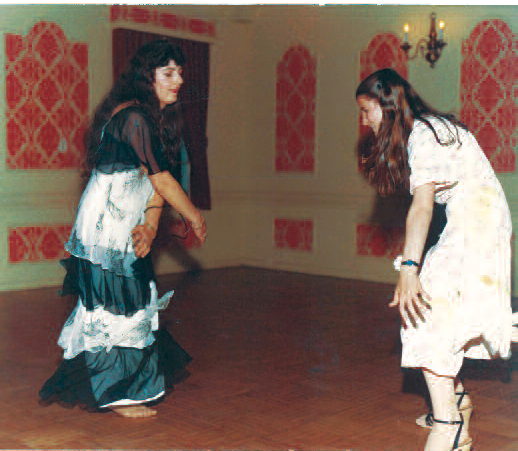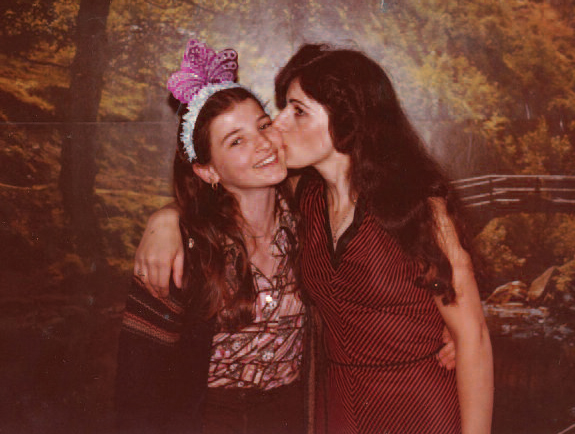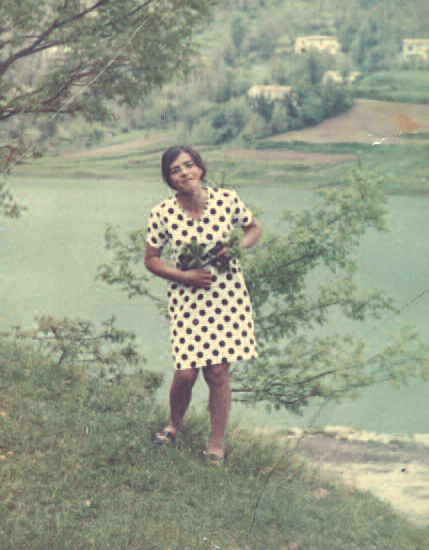
“Who you marry and when you die was written on your forehead the day you were born,” my mother told me when I was young.
I was relieved. It was lucky that God, the Infinite, the All Powerful had things under control. They were much too important to be left up to us to get wrong. Kismet or Ish’Allah—God willing is used as a qualifier of plans, for nothing happens unless God has willed it. No one stood a chance against fate so you let go and never questioned.
This made for a relaxed life. There was no sense of responsibility to make a decision; only to be good, and good was easy for me and especially for my sister, Xharije. She married a man my mother had chosen, but surely with God’s direction. When my loving father died, my sister took his place in my life. I was lucky and happy to have her, but then she was murdered.
I was sixteen, she was twenty-six, chased at gunpoint by her husband from her building next door to ours. She died ringing our buzzer.
Why? Why had God done this to her? To us? We were good people.
“I am going to kill him,” my brother said with a gun in his hand, heading out to find our brother-in-law.
I couldn’t have been more confused. I knew he was following our ancient honor codes of an eye-for-an-eye. But why was he going out to kill God’s accomplice? These codes, along with all manmade laws, assume free will. How can you condemn a person for doing what was divinely inspired? Which were true: the Islamic beliefs or the Albanian codes of honor? The sadness in the house was far too great for me to ask. So my question simmered for decades.
Three years later, after my own disappointing engagement arranged by my mother, I wrote a letter.
Dear God,
I know You have written who I will marry on my forehead on the day I was born, but this could not be him. But You know I cannot do anything to call it off without ruining my family name. And I know that You are powerful and can do anything. So from the bottom of my heart, I ask you to bring this engagement to an end. You know what a good person I am, so you must know I deserve someone better. I really want to love the man I will marry, and I cannot love this man. But I cannot hurt my family either. So please, please, please God, do something. But if you do nothing I will accept my fate.
Love, Hane

I pleaded. I waited. I married.
My first day as the wife of this man, I looked around at the gaudy furniture. Noticing my disapproval, my husband’s aunt explained that I had thirty days for an exchange. No need, I will not be here—the thought came like a knowing. Where had this strange idea come from? There was no such thing as divorce in my culture; in fact that was the reason my sister was killed.
Eight years later I risked everything and left my husband and children. Had I chosen this or was it kismet? Had God selected a path that had been embedded in me? One that came to fruition without any real participation on my part? Or was I choosing every step of the way?
I chose to believe it was me.
When an astrologer told me I would struggle finding work for the next year, I did everything in my power to prove him wrong. A year later, when I was at my wit’s end, a phone call out of nowhere led to an overwhelming number of clients. I had to stop and reconsider. Had the mathematical movement of that planet in that particular house supplied the energy needed?
It’s empowering to think that we choose, but so many “knowings” lead me to believe otherwise.
The knowing that I should introduce my nephew to a random girl whom I met at a party, for she would become his wife. The knowing that the next pitch would be a home run, not just a guessing, but a deep-down-in-the-gut feeling—and he sent it out of the park. Coming to a turn in the stone staircase in a monastery I had never been to before and knowing there would be a crack on the top left corner of the third stair, and there it was.
My sister dreamed she was on a white horse with wings, flying up into the clouds. “I am going to die,” she said.
A week later she was gone.

Does a part of us know the future? Was that part made dormant because we need the element of surprise in order to awaken to a deeper understanding? Was that the key to developing will?
If I had known when and how my sister would die I don’t think I would have loved her as much, or let her teach me songs and throw me birthday parties. I wouldn’t have wanted her to open my heart to love and to be left vulnerable. I would have lived half a life and not hurt as much. Nor would I have had subsequent spiritual awakenings.
When my sister-in-law woke me with the news of my sister’s murder I entered a state of confusion, a not knowing, and at sixteen I knew just about everything. I got out of bed and was aware of my body as it walked to the dining room to my mother. I lay on the floor for days with my heart ripped apart, wishing it was a dream, yearning for her husband to die, but not by my brother’s hand because I could not lose him as well. But more than anything, longing for God to explain.
The shock of it, with no answer in sight, was the gift of my situation. I did not know it at the time, but it had inspired my first experience of self-awareness. Shocks easily jolt us out of our comfort zone, but there are other ways to be self-aware.
Over the years my search led me to whirl with Dervishes, practice Fourth-Way teachings; sit in silent retreats with followers of Buddha. I happened upon a state where there was not question of fate, will, or God for that matter—only being. Nothing mattered except self-awareness.
Over thirty years later I met the man who killed my sister, and all I could feel for him was compassion.
“Wish your brothers would have killed me,” he said, looking at me with sad, empty eyes. “I have nothing to
live for.”
How could this poor, unaware man, stuck in the wheel of an unconscious life, ever change, I wondered? Ever develop self-awareness? Then I realized I had been judging. Who was I to think that he did not have an experience similar to mine on that fateful day, or any other time before or after?
We don’t have to wait for shocks or spiritual experiences to jolt us out of our comfort zones and into self-awareness. The opportunities are all around.
When we can totally be in the heartache of losing a sister. Or the joy of a wedding, the battle with money, or just a walk to the corner store to buy bread. When we experience life from a place of presence, a place of being. When we can observe with the impartial curiosity of a child. When we can stop reacting and begin responding. Then we are no longer victims of fate or circumstance, but full participants in our lives. The possibility of free will is embedded in every moment, waiting.♦

